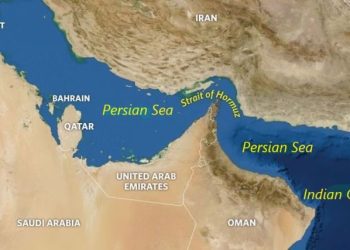Jakarta, Indonesia Sentinel — A Chinese commercial vessel, Yi Peng 3, is under investigation for allegedly dragging its anchor across the seabed of the Baltic Sea, damaging vital undersea internet cables connecting multiple countries.
According to The Wall Street Journal, international investigators suspect the bulk carrier, loaded with Russian fertilizer, dragged its anchor over 160 kilometers along the seabed, disrupting key communication links.
The incident severed two critical internet connections earlier this month: one linking the Swedish island of Gotland with Lithuania and another connecting Finland to Germany. The outages prompted investigations by authorities in Sweden, Lithuania, Finland, and Germany, along with other impacted nations.
The severed cables—Arelion and C-Lion 1—were disrupted on November 17 and 18, respectively. Data from ship tracking websites indicates the Yi Peng 3 sailed over the affected areas around the time the cables were cut. The Chinese vessel departed from Russia’s Ust-Luga port on November 15.
The ship is currently in the Kattegat strait, a passage between Sweden and Denmark that connects the Baltic Sea to the North Sea, since 19 November and is being monitored by the Danish navy.
Potential Hybrid Warfare
The sabotage has raised concerns about hybrid warfare tactics, where nations disrupt their adversaries indirectly through measures like internet outages, food supply interruptions, or political interference. Damaging undersea infrastructure is increasingly seen as a form of modern warfare, capable of crippling communication networks and destabilizing economies.
According to BBC, Sweden has formally requested China’s assistance in the investigation. Swedish officials believe the Yi Peng 3 was in the area when the cables were damaged and are seeking clarity on the vessel’s actions.
China has denied any involvement in the sabotage. A spokesperson from Beijing stated on Friday that China is “willing to work with Sweden and other countries to determine the facts.”
Suspicions of Russian Involvement
Investigators are also examining the possibility that Russian intelligence officials orchestrated the cable damage, even though Russia has denied any wrongdoing.
Why Ink is Important for Indonesia’s Elections and Democracy?
It’s not the first time European officials have suspected Russia of undersea infrastructure sabotage since Russia’s invasion of Ukraine. However, officials have been cautious about directly accusing the Kremlin, fearing it could escalate already tense relations between two nations.
The disruption of these cables highlights the vulnerability of undersea infrastructure, which plays a crucial role in global internet connectivity. As investigations continue, the incident underscores the growing threats to critical infrastructure in an era of hybrid warfare and escalating geopolitical tensions.
(Raidi/Agung)

























